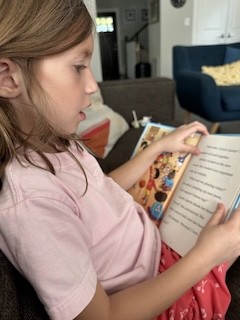Teacher question:
I coordinate reading interventions for my district. I have been told to stop referring to the National Reading Panel, as it is old and no longer relevant. Our universal screener is based on the 5 components of reading, and our basal interventions are also aligned to the "big 5". I don't think there is any way for me to stop referencing the NRP. Would you please comment?
Shanahan's response:
That’s about as dopey as it gets.
The National Reading Panel reviewed a great deal of empirical study in the late 1990s (we published the NRP Report in 2000). There was not a lot of controversy around the report, though there were a handful of critics who complained about various things the Panel did or did not do.
However, whenever anybody reanalyzed the data they ended up with pretty much the same conclusions about what needed to be taught.
Science is different than skirt lengths or necktie widths. It doesn’t go out of date by taste, but only once some new findings supersede it. We used to think that the speed of light was variable until Einstein proved that it wasn’t. Now we’re stuck with that idea until someone can come up with better evidence that helps us to understand it better.
We have learned a lot in the intervening period—17 years is a long time—but even with that, newer reviews or my own reading of the various individual studies in the research literature that have been published would suggest that those five things that NRP wrote about continue to garner research support. If NRP found that phonics instruction was beneficial for young kids, and someone does a new study showing that it even helps some older struggling readers, that wouldn’t impeach the NRP findings—it would simply extend or broaden them.
In fact, most of the studies of phonological awareness, phonics, vocabulary, oral reading fluency, and reading comprehension strategies completed since NRP have tended to confirm the generalizability of the findings to an expanded range of students (e.g., younger kids, older kids, second language learners).
NRP did conclude that there was no convincing evidence that giving kids free reading time during the school day improved achievement—or did so very much. There has been a lot of work on that since NRP but with pretty much the same findings: either no benefits to that practice or really small benefits (a .05 effect size—which is tiny). Today, NRP would likely conclude that practice is not beneficial rather than that there is insufficient data. But that’s arguable, of course.
What I’m saying is that the evidence supporting instruction in the five areas in which NRP concluded were beneficial continues to accumulate—meaning that the case is even stronger today supporting the need for those kinds of teaching. The evidence is stronger now than it was in 2000.
Whoever is telling you to ignore the NRP Report knows very little about reading or reading research and is really doing kids a disservice by pretending to know something about those things.
I checked into Google Scholar today and looked up how many citations for the “National Reading Panel” there had been during 2017. The response: 699 citations this year alone (more than 16,000 since the year 2000). Those 2017 citations are appearing in high impact, scholarly journals like Developmental Psychology, Learning & Instruction, Reading & Writing, Journal of Research in Reading. I guess the scholarly community hasn’t gotten word from your school district that this is inappropriate.
Bottom line? It is still a good idea to explicitly teach kids to hear the sounds within words (phonemic awareness), to decode (phonics), to read text aloud accurately, with appropriate speed, and with expression (fluency), to know the meanings of words, and to use reading strategies when reading text in order to understand it better (reading comprehension).
Given that this report seemed to settle many of the arguments swirling around those things, and that the NRP Report has been ranked as third most influential educational document (right behind the NAEP tests and the international comparisons in mathematics), I think you are safe still relying on the NRP—until science comes up with something better.







Comments
See what others have to say about this topic.